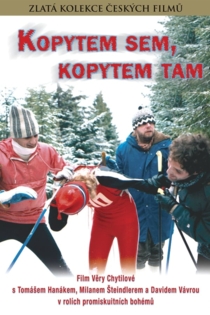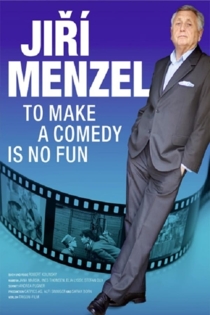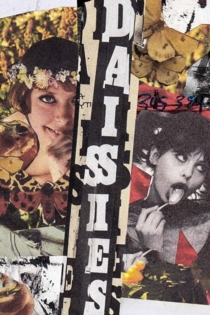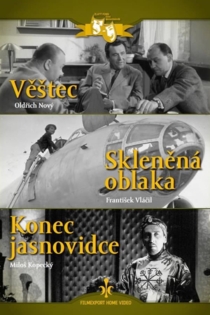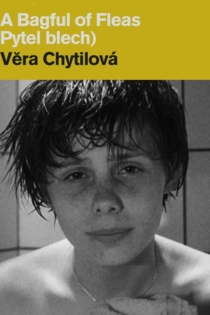
Věra Chytilová
1929 - 2014At the age of 28 she was accepted into the Film and TV School of the Academy of Performing Arts in Prague (FAMU). While attending FAMU she studied underneath renowned film director Otakar Vavra, graduating in 1962.
Chytilová is best known for her once highly controversial film Sedmikrásky (Daisies) – (1966). Daisies is known for its un-sympathetic characters, lack of a continuous narrative and abrupt visual style. Chytilová states that she structured Daisies to “restrict [the spectator’s] feeling of involvement and lead him to an understanding of the underlying idea or philosophy”. The film was banned within Czechoslovakia upon its initial release in 1966 until 1967, but in 1966 the film won the Grand Prix at the Bergamo Film Festival in Italy.
After Daisies the government made it very difficult for Chytilová to find work within Czechoslovakia, even though she was never officially classified as a 'blacklisted' director. After the Soviet Union invasion in 1968 it was virtually impossible for her to find work and she resorted to directing commercials under her husband’s name, Jaroslav Kučera.
In 1976, due to the low cinema attendance she was approached by the government to begin directing films through a state-run production company. At the same time the United States was assembling a 'Year of Women' Film Festival and contacted Chytilová to gain permission to screen Daisies as their opening film. She informed the festival that the only non-censored prints of the film could be found in Paris and Brussels, and that her government would not allow her to attend the festival, nor were they allowing her to direct films. The festival then began to apply international pressure upon the Czechoslovakian government by petitioning on Chytilová’s behalf. In accordance with this international pressure Chytilová wrote a letter directly to President Gustáv Husák. Due to the success of the international pressure, and Chytilová’s personal appeal to President Husak, Chytilová began production of Hra o jablko (The Apple Game, 1976). The Apple Game was completed and then was screened at the Karlovy Vary International Film Festival, and won the Silver Hugo and the Chicago International Film Festival.
Chytilová described herself as a control freak and was known as being actively critical of the Soviet Union, stating that “My critique is in the context of the moral principles you preach, isn’t it? A critical reflection is necessary”. She would routinely cause havoc to make films that were loyal to her vision regardless of the heavy censorship that was routinely imposed. Věra Chytilová’s last film was released in 2006, and she has taught directing at FAMU.
Chytilová embodied a unique cinematographic language and style that does not rely on any literary or verbal conventions, but rather utilizes various forms of visual manipulations to create meaning within her films. Chytilová used observations of everyday life in accordance with allegories and surreal contexts to create a personalized film style that is greatly influenced by the French New Wave, and Italian neorealism.
Císařův pekař – Pekařův císař
Martin Frič
Jan Werich, Marie Vášová
The Emperor's mismanagement of his country is provoking some in his court to plot to overthrow him. He feels successful, at least, when he discovers the legendary Golem, which he believes can protect him and even cure his imaginary illnesses but, when he disappears while on a bender, his kindly baker, who looks just like him, is mistaken for him, and begins to put things in order. However, the conspirators, not to be outdone, determine to bring the Golem back to life to do their bidding.
The Emperor and the Golem
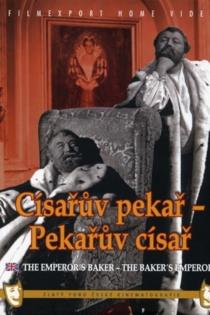
CzechMate: In Search of Jiří Menzel
Shivendra Singh Dungarpur
Jiří Menzel, Antonín Máša
An epic exploration of the Czechoslovak New Wave cinema of the 1960s and 70s, structured around a series of conversations with one of its most acclaimed exponents - Closely Observed Trains director Jiří Menzel.
CzechMate: In Search of Jiří Menzel
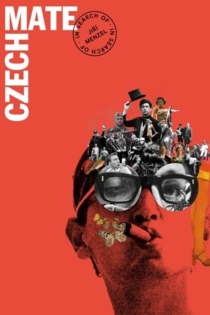
Dědictví aneb Kurvahošigutntag
Věra Chytilová
Bolek Polívka, Miroslav Donutil
Bohus is indolent and spends his days drinking brandy. One day he finds he has inherited a brickworks, several shops and a five-star hotel. Bohus sets out to tour his new empire, insulting everyone on the way.
The Inheritance or Fuckoffguysgoodday
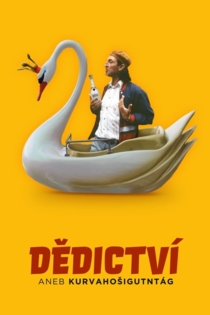
Pátrání po Ester
Věra Chytilová
Ester Krumbachová, Věra Chytilová
Ester Krumbachová - a costume designer, screenwriter, director; one of the boldest personalities of the Czech New Wave. She worked in theatre, she was a writer and an illustrator. She co-created films such as O slavnosti a hostech (1966), Sedmikrásky (1966), Vsichni dobrí rodáci (1969), Pension pro svobodné pány (1968), Valerie a týden divu (1970), Slamený klobouk (1972) and many others. In the 1960s, she was a 'pivot' of the art scene in Prague, attracting artists who were on the threshold of their career, just setting out to find their own form of self-realization. Those who underwent her tutelage remember her forever. Director Vera Chytilová talks to those who knew Ester Krumbachová, who worked with her, befriended her, loved her. She sets off on a search that is to end by answering the question: Who was Ester?
Searching for Ester
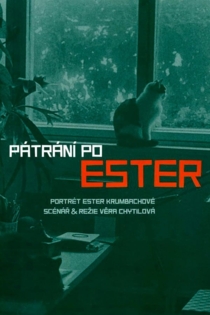
Chytilová Versus Forman
Věra Chytilová
Věra Chytilová, Miloš Forman
An intellectual match between two dramatically different artists, one permanently unsure and frustrated and questioning everything, the other an astonishing storyteller perfectly at peace, unacquainted with introspection and reliant on intuition.
Chytilová Versus Forman
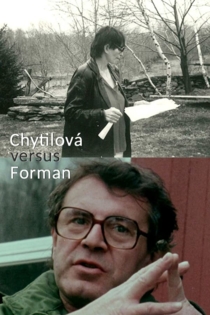
Vzlety a pády
Věra Chytilová
Chytilová’s highly impressive but little-known documentary provides a fascinating and atmospheric journey into a hidden culture, one in which she herself participated. Chytilová investigates the lives of three Czech photographers (Václav Chochola, Karel Ludwig, Zdeněk Tmej) from the 30s to the present, and also embraces the submerged world of 50s culture and the work of novelist Bohumil Hrabal and artist Vladimír Boudník.
Flights and Falls

Panelstory or Birth of a Community
Věra Chytilová
Lukáš Bech, Antonín Vaňha
An old man is wandering round a badly signposted and as yet mostly under construction Prague housing estate looking for the high rise block into which he is supposed to be moving with his daughter's family. The old granddad from the countryside likes chatting, nothing escapes his eyes and he wants to give everyone a helping hand.
Panelstory or Birth of a Community
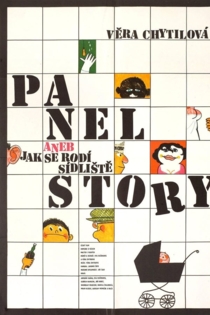
Hra o jablko
Věra Chytilová
Dagmar Bláhová, Jiří Kodet
Sarcastic comedy about the Czechoslovakia of the seventies. A young gynaecologist can't figure out whether to get serious with a young nurse or to stay casual with his married lover. Things get complicated when both women don't want to play his game anymore.
The Apple Game
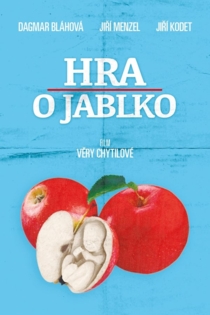
Something Different
Věra Chytilová
Eva Bosáková, Věra Uzelacová
In her first feature, Věra Chytilová uses a combination of documentary and fiction film techniques to tell two stories in counterpoint. The first follows Olympic champion gymnast Eva Bosáková, who contemplates retirement as she undergoes a gruelling training schedule; the second, a housewife who is unappreciated and ignored by her husband.
Something Different
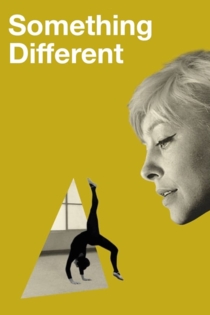
Kopytem sem, kopytem tam
Věra Chytilová
Tomáš Hanák, Milan Šteindler
A striking generational tragicomedy, A Hoof Here, a Hoof There is a caustic group portrait of pals who enjoy a tipple, all kinds of hi-jinks and no-strings sexual adventures. Auditor Pepe, vet Dědek and restaurant manager František are financially secure and enjoy life with their similarly fun-loving girlfriends—at least until the moment when the brash Pepe collapses and ends up in hospital.
A Hoof Here, a Hoof There
